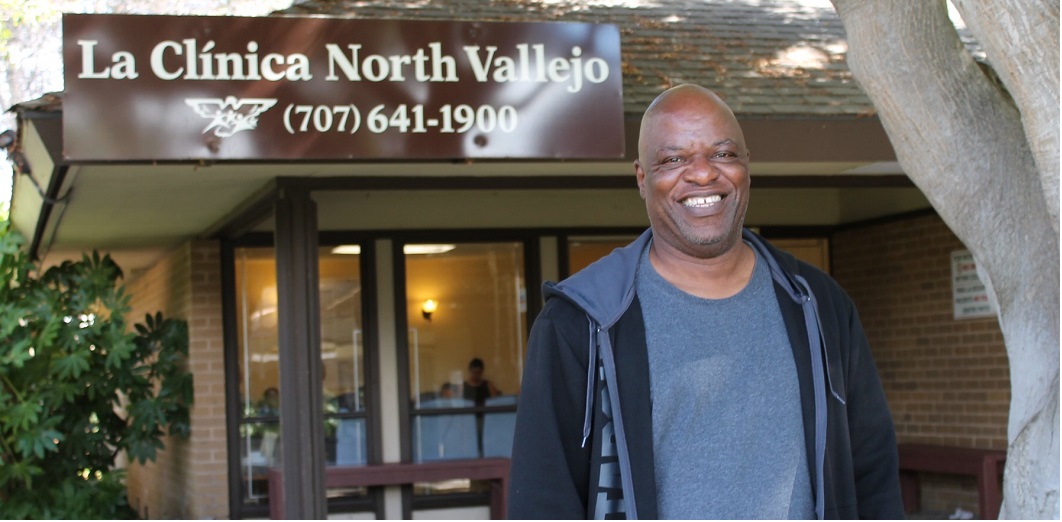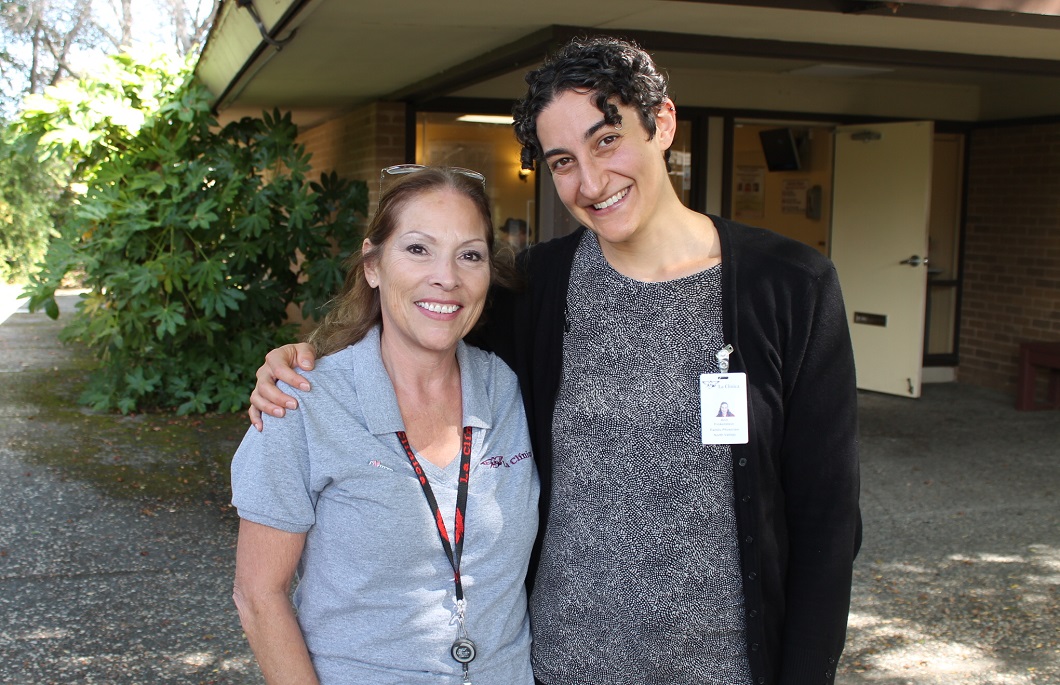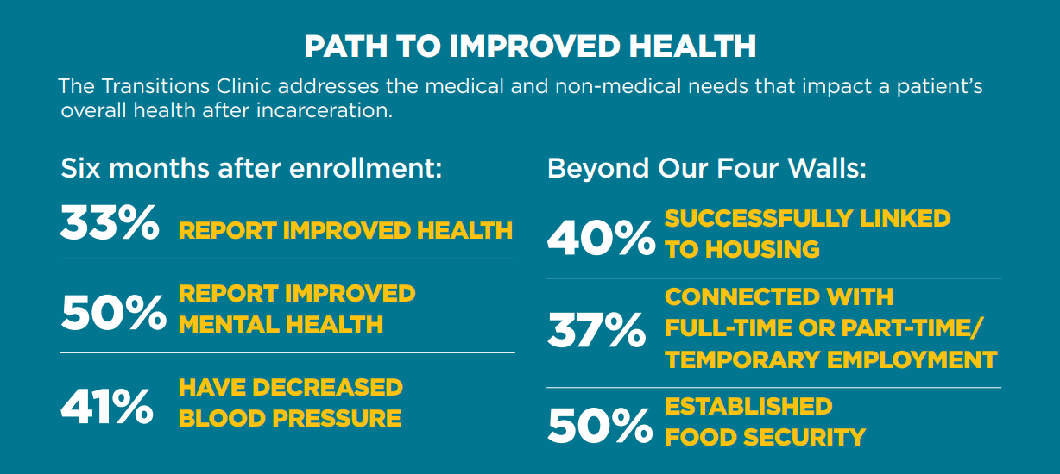
The day before being released from prison after having served more than 28 years, Lawrence Finney was told there was a kidney available for him to receive as a transplant. He was eager to be free, but he was also exhausted from the pain from dialysis, so he accepted the transplant and spent an additional two months in prison receiving care.
Lawrence had developed kidney failure while incarcerated in New York State because he was prescribed two medications that interacted with each other and was never properly monitored. Patients prescribed these two medications normally have their creatinine levels checked every two weeks; his hadn’t been checked in five years.
After receiving his kidney transplant and completing two months in care, he was released and given medication for two months, but otherwise had been given no post-release care plan. He spent several days in New York but decided to move to the West Coast to be closer to family.
When he arrived in California, he had less than two weeks of medication left, no primary care doctor, and he was desperate to control some complications that had arisen with his transplant.
To make matters worse, he did not know how to navigate his new environment or where to turn for help.
His only break came when, as a recently released parolee, he was required to attend a Parole and Collaborative Team (PACT) meeting and it was there that he saw a glimmer of hope. “After all the presentations were done, the first person I went to see was Ms. MaDonna Garcia-Crowley [from La Clínica] and I told her about my plight,” he recalls. “Next thing I know I’m at La Clínica within four days.”
A Clinic to Call Home

Bridging the Gap in Care
For patients like Lawrence, having a proper plan and support network after incarceration can have serious implications. That’s because transitioning back into society from prison is not only difficult; it can also be deadly. According to a study conducted in Washington State and published in The New England Journal of Medicine in 2007, former prison inmates are 12 times likelier to die than other state residents in the first two weeks after release from prison. Conditions inside prisons like poor diet, overcrowding, violence and assaults, and risk factors for infectious disease contribute to poor health while incarcerated; consequently, many prisoners are sicker upon release than at admission. And while health care is constitutionally guaranteed in prisons and jails, that responsibility ends upon release.
The same 2007 study also found that interventions are necessary to reduce the risk of death after release from prison. The goal of the Transitions Clinic is to fill in some of these gaps by providing continuity of care and supporting former inmates as they face the challenge of reintegration.
In the last year and a half, the Transitions Clinic has served more than 64 patients. In the six months after enrollment, most patients report improved mental health, physical health, and decreased blood pressure.
When patients are first connected to the Clinic, the medical provider and medical assistant conduct a comprehensive patient intake of both physical and mental health and develop a unique care plan.
The Transitions Clinic not only offers tailored health care services to re-entry patients, but also addresses other social determinants of health that may impede better health outcomes. Patients are assessed for other needs such as food insecurity, lack of adequate housing, employment, and skills needed for re-acclimation. Uninsured patients are helped to enroll into a health plan, provided navigation services, and connected with community resources available to them.
In addition, community partnerships with organizations like the Food Bank of Contra Costa and Solano County, Partnership HealthPlan of California, and Touro University, among others, have been integral in meeting the array of non-medical needs of this patient population.
The most common types of referrals are for housing, employment, transportation, and food. Ninety-one percent of referrals made through the Transitions Clinic have been successfully accessed by patients.
With La Clínica’s support, Lawrence was hired part-time with United Postal Service as a seasonal package deliverer helper.
“Not only have they helped me in receiving medical attention, but also with housing, and trying to get a job. They are an abundance of wealth and information. It’s everything you’d ever want,” he says.
Moreover, La Clinica North Vallejo Transitions Clinic is the only one in the Network that partners with county detention centers to offer iWebVisits to inmates to ensure continuity of care. The care team reviews lists of soon-to-be-released inmates and recruits prior patients, seniors, and transients, all of whom are most at risk.
Hope for a Brighter Future
Having such a vital resource readily available has empowered and enabled patients like Lawrence to have productive lives after prison. He sometimes shares his journey with Transitions Clinic at the same PACT meetings where he was first linked to care in 2017. He hopes to assist other people like himself who have chronic conditions and a history of incarceration.
“They’re kind, they’re loving, and they’re caring,” he says of La Clinica. “I would recommend anyone that’s coming out of prison, or anyone who doesn’t have a physician or doctor in general, to go to La Clínica because they offer so much more than the fine care they give you.”
Lawrence is still adapting to the outside world after spending more than half his life in prison, but he’s staying active and feels optimistic about the future. For now, he’s living each day as a privilege not to be taken for granted, he says.

